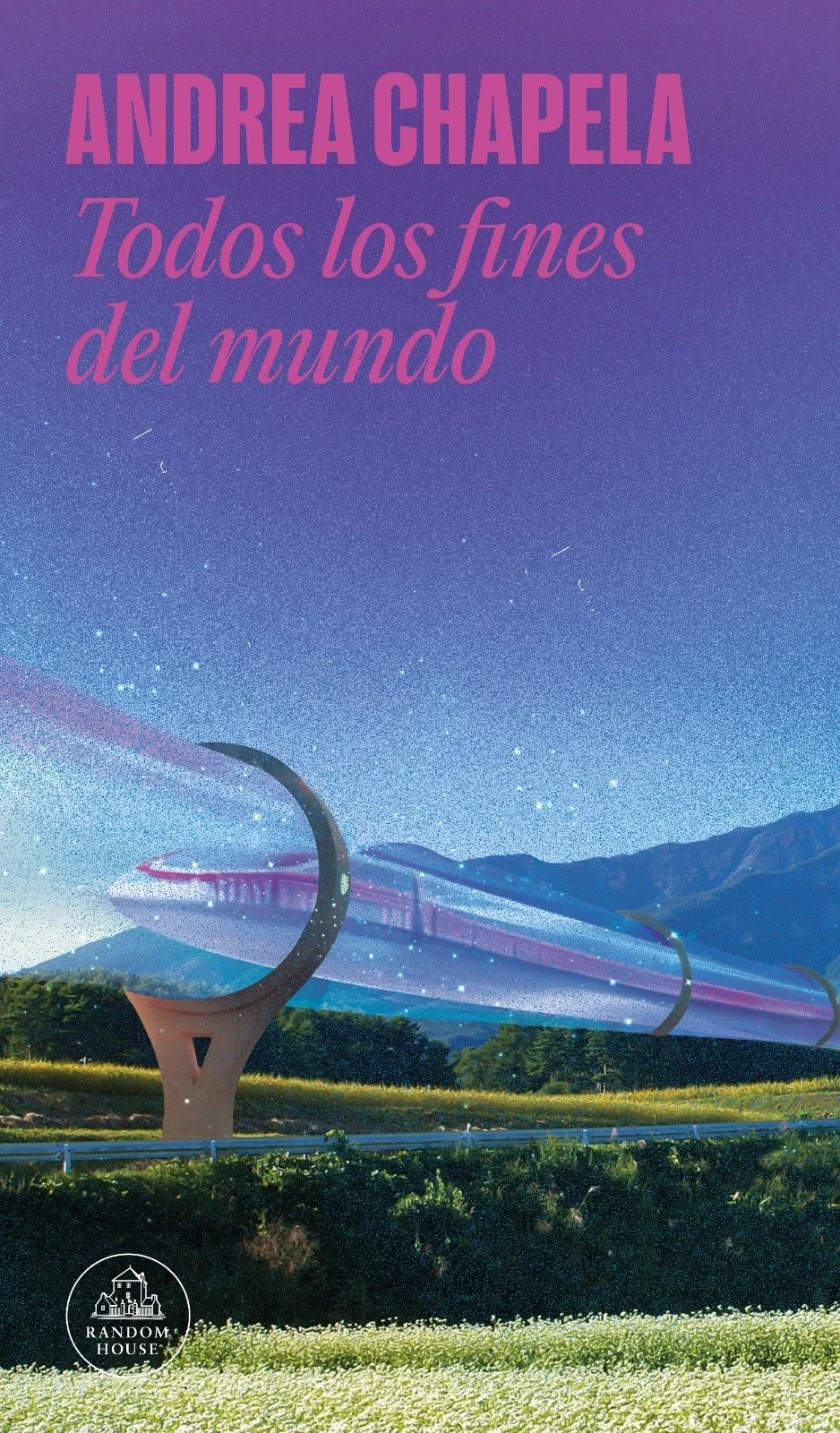Todos los fines del mundo
Andrea Chapela
FICTION | 2025 | 328 pages
“Who would you spend your time with during the end of the world?” could seem like a hypothetical question, but to Angélica —who lives in a world dominated by the climate catastrophe, extreme seasons, and days of confinement —it becomes an obsession. In Madrid, her neighbors, friends, and loves Manu and Susana represent one possible option: the three of them together, lying in the park; together, cuddling while watching some movie in Manu’s room; together during the emergency in the bar where Susana works. Before responding, Angélica must return to Mexico with that question, one that will stay with her even after the global collapse.
Todos los fines del mundo is a story divided into three parts that moves intelligently between places, literary genres, and temporalities while investigating the tenuous divide between friendship and love. With narrative force and talent, Andrea Chapela gives us hope for the future even in the midst of disaster in this novel.
RIGHTS: spanish PENGUIN RANDOM HOUSE
“In a world of things that end or threaten to end all the time—and don’t let the title of this novel fool you—we find an overflow of beginnings and possibilities with Andrea Chapela. From the promises of fiction with its numerous twists and turns, the mysteries of love (with its gestures and silences), to the dystopias that are written and utopias that are read, ultimately everything is concentrated in a question from the narrator that reverberates from on the page, tinting every thing that follows with its urgent beauty (because it goes on, so that it can go on): In the solitude of the end of the world, what remains other than loving each other?”
“In the middle of an end of the world, the protagonist of this novel Angélica travels through places, genres, and emotions to answer the questions she never dared voice to her two friends that were her two loves. Todos los fines del mundo is a reflection on love, friendship, desire, and the fragile limits we create to separate them that invites us to ask ourselves about other ways to love and narrate through slow, soft prose.”
“Who would you spend your time with during the end of the world? In this surprising matrioshka-esque novel live multiple apocalypses and a web of affections that, with its delicate and floating threads, traverses multiple geographies and timelines. This is a fable that it as once melancholic and hopeful about writing’s ability to create worlds, imagine the future, name the ungraspable, and create community in the midst of uncertainty. Todos los fines del mundo confirms Andrea Chapela’s unique talent for forging unique paths in Latin American literature.”
BY ANDREA CHAPELA:
Todos los fines del mundo
FICTION, 2025
Ansibles, perfiladores y otras máquinas de ingenio
STORIES, 2020
Un año de servicio a la habitación
STORIES, 2019
Grados de miopía
ESSAYS, 2019
Vâudïz
YOUNG ADULT, 2015

